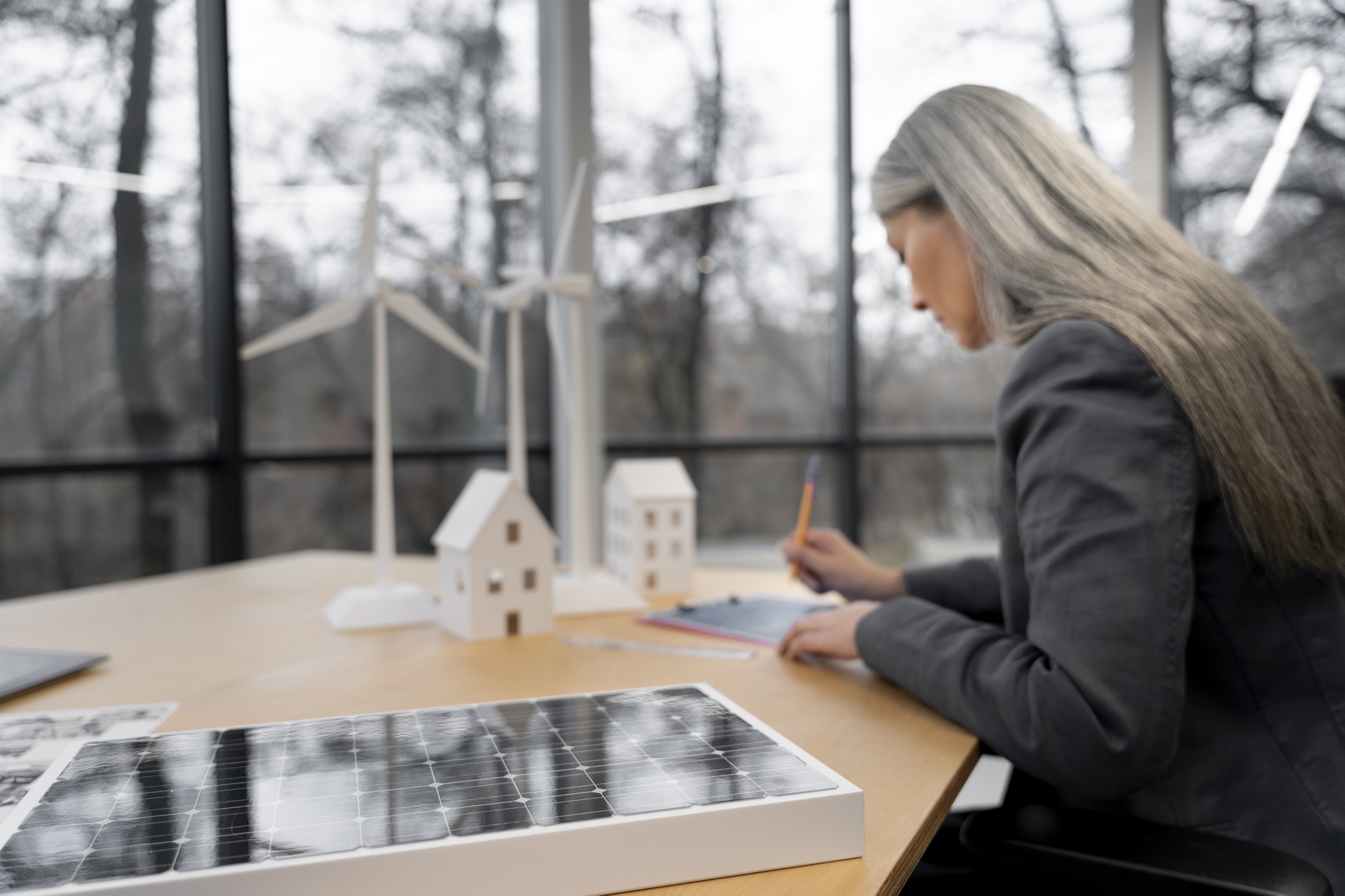As we move towards a more sustainable future, the concept of eco-friendly homes is becoming increasingly popular. With advancements in smart home technology, it’s now easier than ever to reduce your environmental impact while increasing energy efficiency and comfort. Here’s how technology can help you live green in a smart eco-friendly home.
1. Smart Thermostats for Energy Efficiency
Smart thermostats, such as Nest and Ecobee, allow you to control your home’s heating and cooling systems more efficiently. These devices learn your habits and adjust the temperature accordingly, ensuring that you use energy only when necessary. Additionally, they can be controlled remotely via smartphone apps, so you can adjust settings even when you’re away.
- Benefits: Reduce energy consumption, lower utility bills, and minimize your carbon footprint by using energy only when needed.
2. Solar-Powered Smart Devices
Integrating solar power into your home can drastically reduce your reliance on grid electricity. Smart solar panels and solar-powered devices, such as solar lights and solar water heaters, can harness the sun’s energy to power your home. These systems are particularly useful for reducing energy bills and helping you live sustainably.
- Benefits: Clean, renewable energy source that helps lower energy costs and supports environmental sustainability.
3. Energy-Efficient Smart Appliances
Energy-efficient smart appliances, such as washing machines, refrigerators, and dishwashers, are designed to use less energy and water while offering improved performance. These appliances often come with features that allow you to monitor and control their energy use, providing further opportunities to save energy.
- Benefits: Lower electricity consumption, reduce water waste, and improve overall household efficiency.
4. Smart Lighting Systems
Smart lighting systems, such as LED lights with motion sensors, can help reduce energy consumption by ensuring lights are only on when needed. Additionally, many smart lighting systems can be programmed to adjust the brightness or turn off automatically when you leave a room, further reducing energy usage.
- Benefits: Conserve energy, reduce electricity bills, and create a more convenient and sustainable home environment.
5. Smart Water Management
Water conservation is a key aspect of any eco-friendly home. Smart water management systems, including water leak detectors, smart irrigation systems, and low-flow fixtures, help reduce water waste. These systems can be controlled remotely and are designed to adjust to your water usage habits, ensuring efficient water management throughout your home.
- Benefits: Reduce water waste, lower water bills, and contribute to preserving this valuable resource.
6. Home Energy Monitoring Systems
With home energy monitoring systems, such as Sense or Neurio, you can track your household’s energy usage in real time. These systems give you insights into which devices consume the most energy, allowing you to make smarter decisions about how to reduce your overall energy consumption.
- Benefits: Greater control over energy use, improved efficiency, and the ability to identify areas where you can make changes to lower your environmental impact.
7. Automated Shades and Windows
Smart windows and automated shades can help regulate your home’s temperature and light levels. For instance, windows that adjust their tint based on sunlight can reduce the need for air conditioning during the day. Automated shades can be programmed to open and close depending on the time of day, helping to maintain optimal natural lighting and reduce the need for artificial lights.
- Benefits: Enhance energy efficiency, reduce the need for air conditioning and heating, and improve natural lighting in your home.
8. Green Roofing and Smart Garden Solutions
Green roofs, coupled with smart garden systems, allow homeowners to grow their own food sustainably. Smart garden systems can monitor soil moisture levels, sunlight, and temperature, ensuring that plants receive the optimal conditions for growth. This helps reduce the environmental impact of food transportation and promotes urban agriculture.
- Benefits: Promote sustainable food production, improve air quality, and enhance the aesthetic value of your home.
Conclusion
Smart eco-friendly homes are revolutionizing the way we live by combining cutting-edge technology with sustainable practices. From energy-efficient appliances and smart thermostats to solar-powered devices and water-saving solutions, technology is helping us reduce our environmental footprint while enhancing the comfort and convenience of our homes. By embracing these smart technologies, we can all contribute to a greener, more sustainable future.


